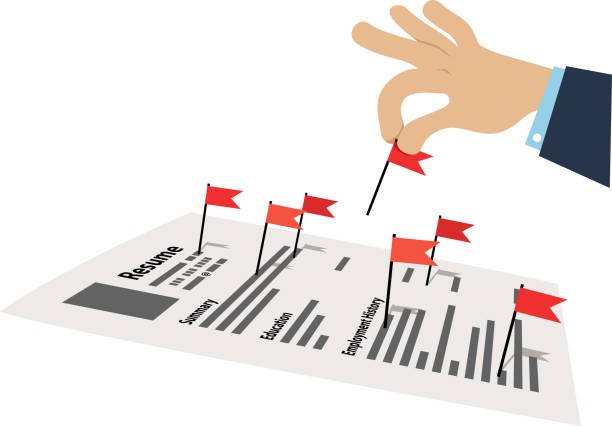
9 Common Resume Mistakes & How to Avoid Them
When you’re job hunting, your resume is your most important tool. It’s your chance to make a good first impression on potential employers. But if your resume is full of mistakes, it won’t do you any favors.
This blog post will show you some of the most common resume mistakes and how to avoid them. By making these simple changes, you can make sure your resume is polished and professional
Common Resume Mistakes
There are a few common resume mistakes that job seekers make that can cost them the opportunity to get their foot in the door with a potential employer.
Not Tailoring the Resume to the Job
One of job seekers’ most common mistakes is not tailoring their resume to the job they’re applying for. A resume should be created or updated to reflect the specific skills and experience an employer is looking for. By not tailoring a resume, you will likely miss out on opportunities to show that you’re the best candidate for the job.
Applying Without a Cover Letter
One of the most common resume mistakes is applying without a cover letter. A great cover letter can make the difference between getting an interview and being overlooked. Be sure to address the hiring manager by name, state the specific position title you are applying for, and include your best professional achievements.
Using an Unprofessional Email Address
There are a few common resume mistakes that job seekers make which can easily be avoided. One mistake is using an unprofessional email address. An email address such as “idrinkalot@gmail.com” conveys a lack of seriousness and professionalism and should be avoided when applying for jobs.
Having an Objective Instead of a Career Summary
When writing a resume, it is important to have an objective or summary statement. This brief and concise statement tells potential employers about your career goals. It is a way to sell yourself and briefly introduce your resume. However, the two are not the same thing. A resume objective is a brief statement of intention for employers to know exactly what you’re looking for. A professional summary is longer and tells them who you are and what you can do.
Listing Duties Rather Than Accomplishments
One of the most common resume mistakes is listing duties rather than accomplishments. This can make your resume seem dry and uninspiring, and it won’t give employers a good sense of what you’re capable of. Instead, focus on highlighting your accomplishments in each role you’ve had. This will show employers what you’re capable of and help you stand out from the competition.
Going Over One Page
One common mistake people make when creating resumes is going over one page. This can be a turn-off for potential employers, as it can look like you’re trying to cram too much information onto the resume. Instead, focus on quality over quantity and only include the most relevant and impressive information.
Another common mistake is including irrelevant or unrelated work experience on the resume. Hiring managers are typically only interested in an experience directly related to the open position. Including too much or irrelevant information can make your resume appear unfocused and lead to it being passed over and too long of a resume.
Finally, format your resume in a professional and easy-to-read manner. This will make employers more likely to take the time to read through your entire resume.
Using Passive Language
When writing your resume, avoid using passive language. Passive language can make your resume sound boring and can use too many words. Use active language to make your resume sound more interesting and concise. Active language is more direct and uses fewer words. Use spell check and proofread your resume several times before submitting it.
Typos and Grammatical Errors
Typos, spelling, and grammar mistakes are also commonly made on resumes and can give the impression that you are careless or not detail-oriented. To avoid these errors, proofread your resume carefully before submitting it. You can also try printing or copying it into a blank email to get a fresh perspective on the words.
If you are not confident in your proofreading skills, you can also ask a friend or family member to read through your resume. You can also use a free online grammar checker, such as Grammarly, to help spot any mistakes.
Not Keeping Your Resume Up to Date
It’s important to keep your resume up to date, even if you’re not actively looking for a job. Regularly updating your job search credentials will prepare you for the worst eventuality at a moment’s notice. Do yourself a favor and spend a few minutes each month making sure your resume is current.
